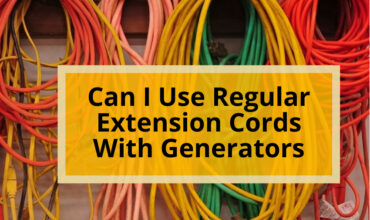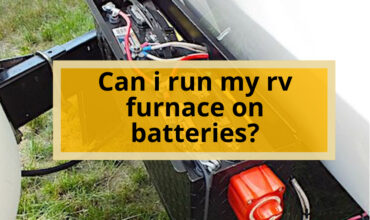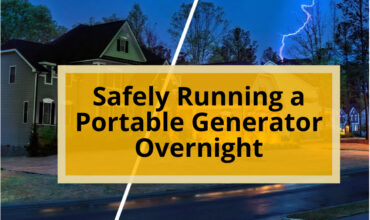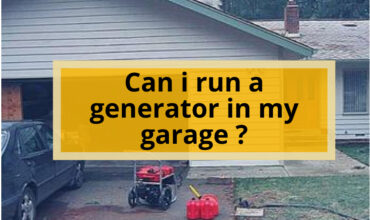Like a lighthouse in a storm, a whole home generator can provide a reliable source of backup power during outages. These generators have become increasingly popular in recent years, as they can help prevent food spoilage and health risks, and keep your home running smoothly when the power goes out.
However, before investing in a whole home generator, it’s important to weigh the pros and cons of this technology. In this article, we will explore the benefits of whole home generators, as well as the costs and installation information, and the yearly maintenance and location placement considerations.
By understanding the advantages and disadvantages of whole home generators, homeowners can make an informed decision about whether this technology is right for their needs. Whether you’re looking to protect your family from power outages or simply want to ensure that your home remains comfortable and functional during a storm, a whole home generator may be the solution you’re looking for.
Benefits
The benefits of whole home generators are numerous and significant. One of the most important advantages is the ability to provide instant power from grid power to backup generator. In the event of a power outage, a whole home generator can kick in almost immediately, ensuring that critical systems like heating, cooling, and medical equipment continue to function. This is particularly important for individuals who rely on electricity to maintain their health and well-being.
Additionally, whole home generators can run for longer periods of time than portable generators, which means that they can provide continuous power for several days or even weeks. This is especially important in areas where power outages are frequent or where inclement weather conditions are common.
Another key benefit of whole home generators is that they can prevent food spoilage and health risks from inclement weather conditions. When the power goes out, refrigerators and freezers can quickly lose their ability to keep food and other items at safe temperatures. This can lead to spoilage and the potential for foodborne illness. A whole home generator can prevent this by ensuring that the appliances remain powered even during an outage.
Finally, investing in a whole home generator can be an investment in peace of mind. Knowing that you have a reliable backup power source can help alleviate anxiety and stress during a power outage, allowing you to focus on other priorities.
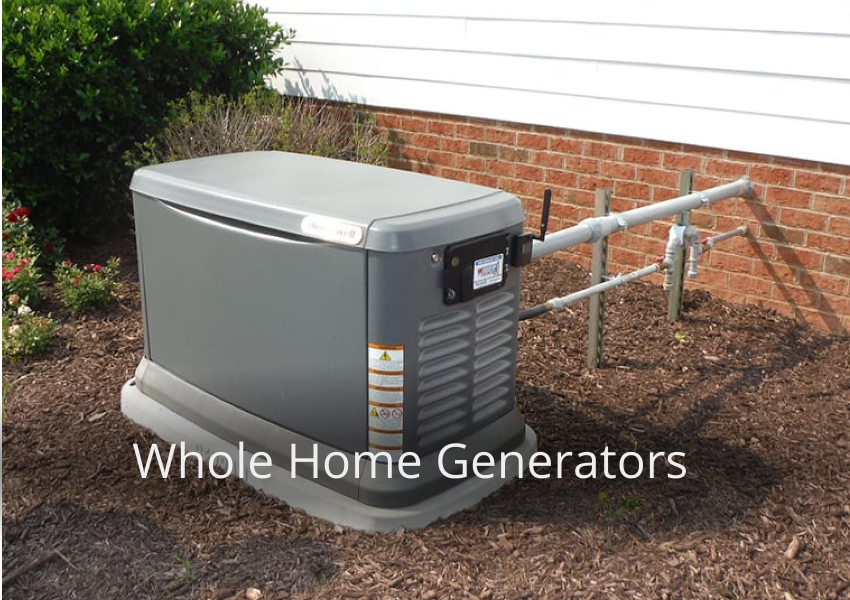
Cost and Installation
Installation costs for whole home generators can range from $5,000 to $11,000, with the average cost being between $5,000 and $6,000. The cost of installation varies depending on the size of the generator, the complexity of the installation process, and the location of the home. Professional installation is required for most whole home generators, which adds to the overall cost. It is important to consider the cost of installation when deciding whether a whole home generator is right for you.
Financing options may be available for whole home generator installation. Some companies offer financing plans that allow homeowners to make monthly payments for the cost of the generator and installation. This can make the upfront cost of a whole home generator more manageable. It is important to research financing options and compare them to the overall cost of the generator and installation to determine what is the best choice for your budget. Additionally, it is important to factor in the cost of yearly maintenance when considering the overall cost of a whole home generator.
also read : What Are Portable Generators Used For ?
Maintenance and Placement
Yearly maintenance and location placement are important considerations when deciding on a backup power source for a household. Whole home generators require regular preventative maintenance to ensure they are in good working condition and will function properly in the event of a power outage. This maintenance typically includes tasks such as oil and filter changes, spark plug replacement, and battery checks. It is recommended that a professional technician perform this maintenance, and the cost can range from $250-$600 per year.
Location restrictions may also be a factor to consider when installing a whole home generator. The generator needs to be placed in a location that is accessible for maintenance, but also far enough away from the home to prevent carbon monoxide poisoning. Additionally, local building codes may dictate where the generator can be placed, and homeowner association rules may also apply. These restrictions can limit the available options for generator placement and increase the cost of installation. It is important to research and comply with all regulations before installing a whole home generator.
Frequently Asked Questions
How loud are whole home generators when they are running?
Whole home generators can produce noise levels ranging from 60-80 decibels, similar to a vacuum cleaner or lawn mower. Regular maintenance is necessary to keep the noise level low and ensure proper functioning.
Can a whole home generator be powered by renewable energy sources?
A feasibility study would need to be conducted to determine if renewable energy solutions could power a whole home generator. This would involve analyzing the energy needs of the home and identifying the most suitable renewable energy sources for the area.
Are there any environmental concerns associated with using a whole home generator?
Whole home generators have an environmental impact due to fuel consumption. The amount of fuel used depends on the generator’s wattage and runtime. Alternative fuel options, such as propane or natural gas, may reduce emissions.
How long does it take to start up a whole home generator during a power outage?
A whole home generator typically takes 10-30 seconds to start up during a power outage. Generator maintenance and fuel options, such as natural gas or propane, should be considered to ensure reliable operation during extended outages.
Can a whole home generator be used to power a home during an extended period of power loss, such as during a natural disaster?
Whole home generators can be used to power a home during an extended period of power loss, such as during a natural disaster, depending on the generator capacity. However, yearly maintenance cost must also be considered.


